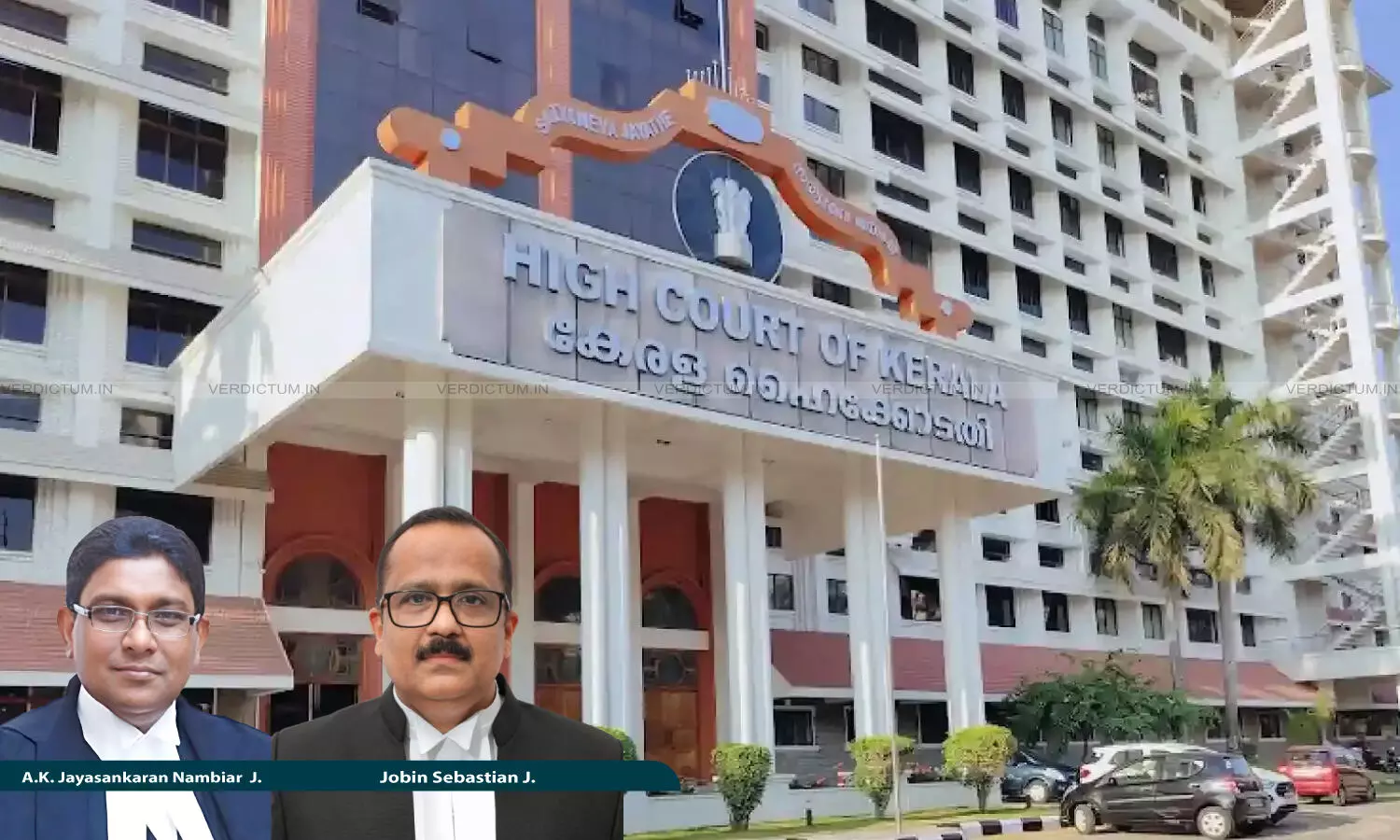
Justice A.K. Jayasankaran Nambiar, Justice Jobin Sebastian, Kerala High Court
Kerala High Court Issues Guidelines For Police On Effecting Arrests Within Court Premises; Directs Constitution Of Grievance Redressal Committees
 |
|The Public Interest Litigation before the Kerala High Court was initiated suo motu based on a letter received from the Kerala High Court Advocates' Association.
The Kerala High Court has issued a set of clarifications which would guide the Police in the matter of effecting arrests of persons within the court premises in the State.The High Court has also directed the constitution of Committees at the State and District levels for the redressal of grievances.
The Public Interest Litigation was initiated suo motu based on a letter received from the Kerala High Court Advocates' Association that brought to the Court’s notice an incident involving an altercation between an Advocate and Police Officials within the premises of the Judicial First Class Magistrate Court, Ramankary in Alappuzha District.
The Division Bench of Justice A.K. Jayasankaran Nambiar and Justice Jobin Sebastian held, “On a consideration of the various suggestions, we are of the view that over and above the statutory and administrative guidelines already in place such as the provisions of the Bharatiya Nagarik Suraksha Sanhita, the Kerala Police Act, the Government Orders and Office Memorandum issued by the State Government and the judicial guidelines prescribed in the context of arrest in the various judicial precedents, the following clarifications would suffice to guide the Law Enforcement agencies in the matter of effecting arrests of persons within the court premises in the State…”
Factual Background
Taking judicial notice of the rising number of such instances in the State, an order was passed directing the Secretary, Home Department and the Director General of Police of the State to make available before the Court, all recent Government Orders, Circulars and Office memorandums, that had been issued to the Police Officials instructing them on the conduct that they had to adhere to while attending to proceedings before the Courts and other judicial authorities within the State. Noticing the absence of Circular or Office Memorandum issued specifically to guide Police personnel on the conduct to be adhered to while attending to judicial proceedings, a Model Code of Etiquette and Conduct for Police Personnel was drawn up.
Finding that the above guidelines were general and the attempt in these proceedings was to draw up a specific guideline as regards the code of conduct to be adhered to by Police personnel within court premises, the Court directed the State Police Chief to invite the suggestions of other stakeholders, and then submit a report on the outcome of deliberations. The Committee constituted vide the Court’s order furnished their suggestions in the matter, which were noted by the Bench.
Directions
On a consideration of the various suggestions, the Bench was of the view that a set of clarifications would suffice to guide the Police in the matter of effecting arrests of persons within the court premises in the State. The Bench explained that “Court premises” shall be taken as referring to not just the courtrooms, but shall also include all lands, buildings and structures (except residential quarters) used in connection with court proceedings during the notified working hours of the court, or till the court is in session, whichever is later.
Some of these guidelines include:
(i)Arrest, detention or apprehending any person in court premises during court hours shall, except in situations covered by clause (iii) below, be done only with prior intimation to the Presiding officer/jurisdictional court.
(ii)Provided that any person who intends to surrender before court in connection with any crime either by himself or accompanying a lawyer/advocate shall not be arrested apprehended or detained in court premises without prior permission of the Presiding officer/jurisdictional court.
(iii)Police may arrest or use necessary force to arrest persons in court premises in emergent situations necessitating immediate action in order to prevent the occurrence of a cognizable offence within the court premises. Police can also arrest absconding persons/accused in long pending warrant matters in the court premises. However, intimation of arrest of persons in both of the aforementioned circumstances must be given to the presiding officer of the court immediately after the arrest.
The Bench also ordered the constitution of a two-tier grievance redressal mechanism. These include Committees at the State and District levels. “The deliberations of the Committees as constituted above shall be held at venues identified as convenient for all the stakeholders. Disputes or grievances that cannot be resolved at the District Level shall be escalated to the State Level and resolved by the State Level Committee”, it held.
“The State Government shall forthwith issue an Office Memorandum highlighting the clarifications noted above for the purpose of informing all the stakeholders of the contents of this order”, the Bench held while directing that the writ petition be posted for further consideration after two months.
Cause Title: Suo Motu v. State of Kerala (Case No.: W.P.(C).NO.32952 OF 2024)